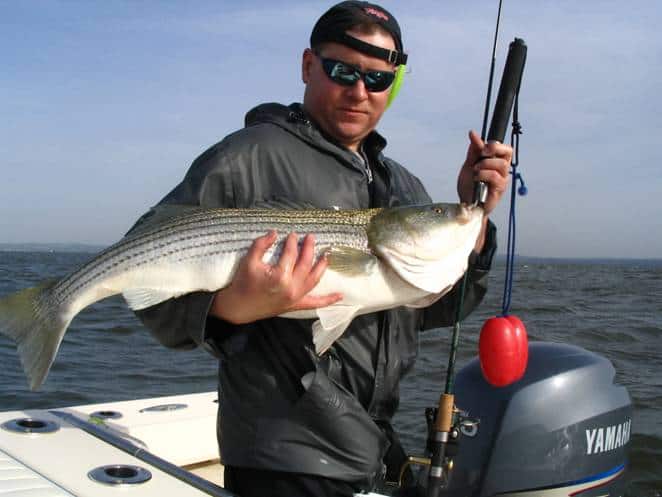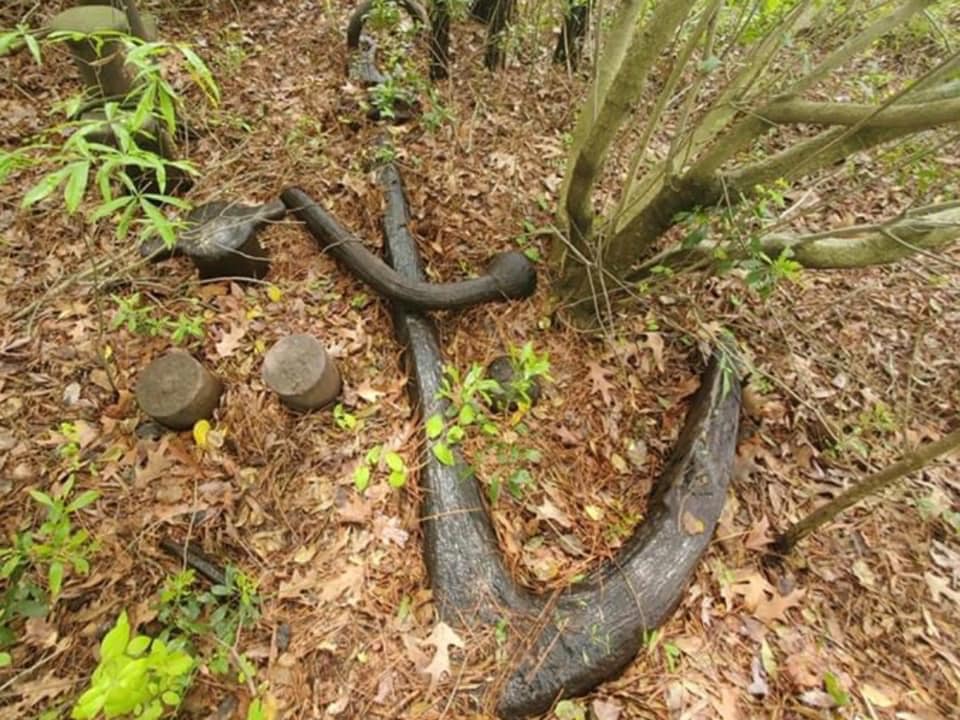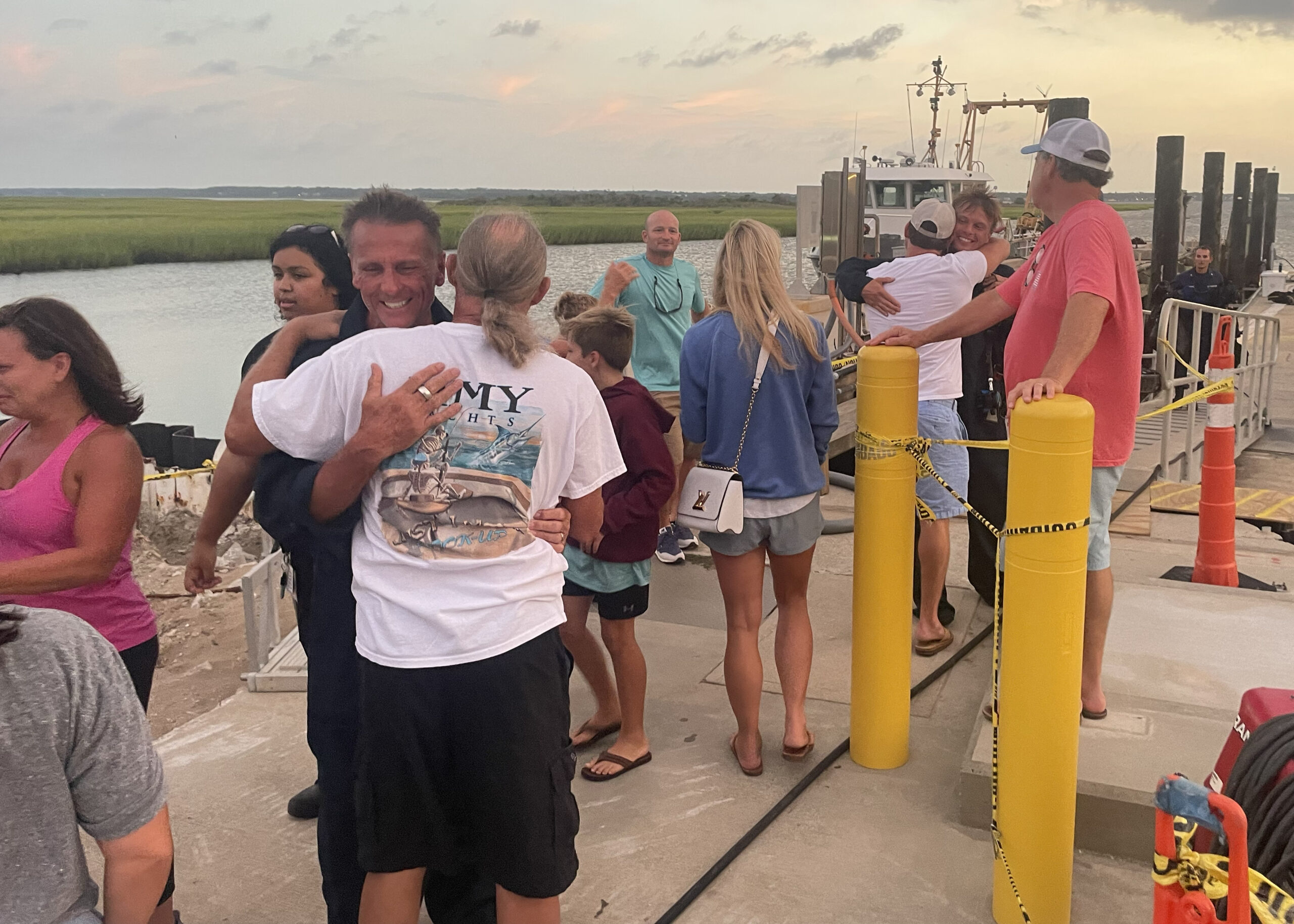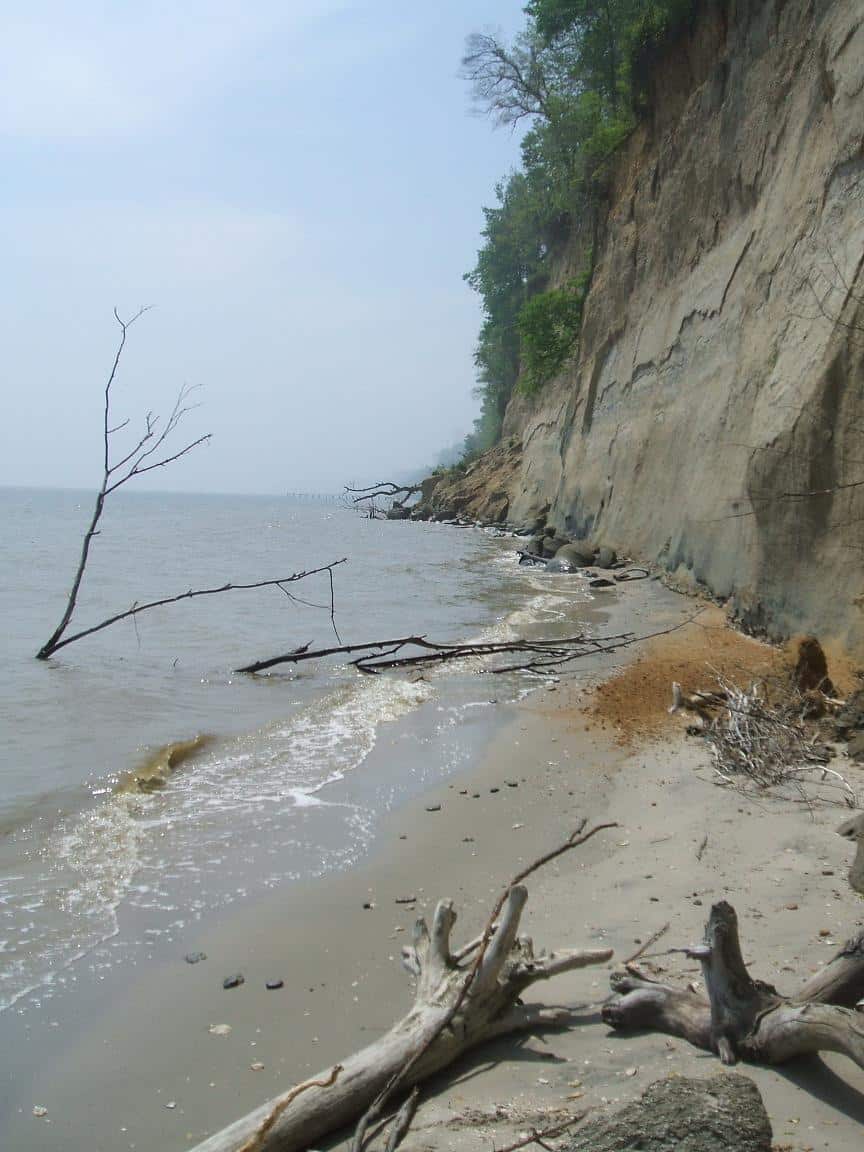Chesapeake outdoor sportsman Captain Chris Dollar brings the latest wildlife news to the Bay Bulletin.
With tighter regulations on stripers expected in 2020 in the Chesapeake and along the Atlantic coast, Virginia is now considering proactive measures to reduce to its recreational harvest. Photo: Capt. Chris D Dollar/CD Outdoors.Will Virginia Cut its Rock Fish Harvest Ahead of Likely East Coast Limit Changes?
Last month, the Atlantic States Marine Fisheries Commission released its most recent striped bass stock assessment, and as expected, the news wasn’t good. Researchers determined that this popular gamefish is in trouble, something most sport anglers from Cape Henry to Cape Cod already suspected. Next year, it’s expected regulations in the Chesapeake and along the Atlantic coast will tighten on this popular gamefish. Ahead of that likely action, Virginia is considering making proactive cuts to its harvest. The next Virginia Finfish Management Advisory Committee meeting is March 25, at 6 p.m., the VMRC headquarters—Building 96, 380 Fenwick Road, Ft. Monroe, VA 23651. On the agenda are various options on ways to reduce the recreational harvest of stripers.
Virginia Considers Ban on Fish Towing, Public Hearing March 26
It might come as news to some, but anglers in Virginia are allowed to tow striped bass and cobia behind a boat as long as the angler keeps the fish. This practice is usually done in tournaments in order to bloat the fish’s stomach and thereby increase the weight and the angler’s chance of winning. As one would expect, a fish attached to a towed line dragged behind a boat doing three to five knots has little to no chance of survival.
Supporters of the Virginia Marine Resources Commission’s draft rule banning the practice say it is needed since towing fish makes culling, the illegal practice of discarding one fish for a larger fish, too tempting. Also, adding weight to inflate the fish’s weight at the scale potentially creates problems for tournaments and the state’s citation program. Those who oppose a ban on towing argue that the practice is a way to keep fish from spoiling if the angler’s onboard fish box isn’t big enough. Also, their argument goes, why is it the commission’s business to dictate how they dispatch their fish as long as it is within the rules?
Both sides of the issue will get a chance to sound off at 9:30 a.m. on March 26, when the commission hosts a public hearing at its headquarters at 380 Fenwick Road, Ft. Monroe, VA 23651. The Virginia Saltwater Sportfishing Association has an online poll in which 76 percent of the current respondents believe towing stripers and cobia while in gear should be banned. Learn more about the issue as well as take the poll here—joinvssa/org/action-plan/rockfish/
Public Comments on Next Waterfowl Season: Deadline Nears
One thing we know for sure regarding next year’s waterfowl season in Virginia, Delaware and Maryland: Hunters will only be allowed one migrant Canada goose per day per gunner and the season will run only 30 days. If you have an opinion on other Maryland migratory bird seasons and bag limits you have until noon on March 15 to let the Maryland Department of Natural Resources know. That’s the cutoff for public comment on the proposed 2019-2020 Migratory Game Bird Hunting Seasons. It’s expected the regulations will become final later this spring once DNR wildlife officials review all public comments and get final approval from the U.S. Fish and Wildlife Service. You can voice your opinion online, or by phone at (410) 260-8540, or in writing to: Maryland Department of Natural Resources–Wildlife and Heritage Service, 580 Taylor Avenue, E-1, Annapolis, Maryland, 21401.




